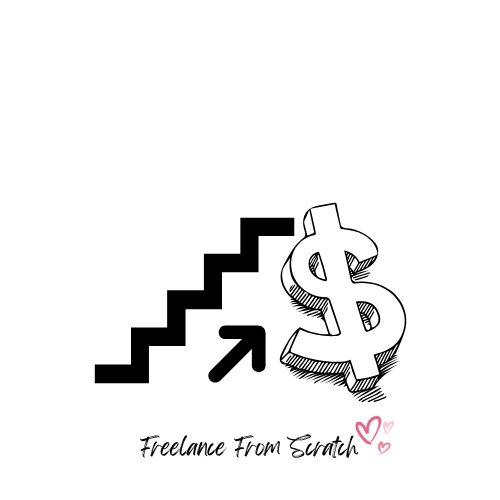5 Ways to Budget as a Freelancer and Avoid Financial Stress

Table of Contents
How to budget as a freelancer is a question many self-employed professionals face. Freelancing offers incredible freedom—you get to set your schedule, choose your projects, and even work from your favorite coffee shop. But let’s be honest, managing finances when your income fluctuates can feel overwhelming.
Imagine this: It’s a slow month, and instead of panicking about rent, you’re calm and confident because you’ve budgeted wisely and your emergency fund has you covered. Sounds good, right? The good news is, learning how to budget as a freelancer doesn’t have to be complicated. With a few simple strategies, you can take control of your money, plan for slow months, and set yourself up for financial success.
Step 1: How to Budget as a Freelancer by Knowing Your Numbers
The first step in how to budget as a freelancer is understanding exactly what’s coming in and going out. Tracking your finances gives you a clear picture of where you stand.
- Income: Record payments from all your clients. If your income varies month-to-month, calculate your average income over the past six months.
- Expenses: Write down everything, from software subscriptions and office supplies to your internet bill and coffee runs.
💡 Pro Tip: Use tools like Mint, YNAB (You Need A Budget), or QuickBooks to track your income and expenses automatically.
Knowing your numbers is the foundation for creating a realistic and effective budget.
Step 2: Separate Personal and Business Finances for Better Freelance Budgeting
Freelancing means you’re essentially running your own business, so keeping personal and business finances separate is crucial.
- Open a dedicated business bank account for all freelance income and expenses.
- Use accounting software like QuickBooks or Wave to keep everything organized.
- Pay yourself a consistent “salary” from your business account to your personal account.
This separation simplifies budgeting, makes tax season less stressful, and helps you see your business’s financial health at a glance.
Step 3: Create a Monthly Budget to Master How to Budget as a Freelancer
Now that you’ve tracked your finances, it’s time to create a monthly budget tailored to your freelance lifestyle.
Start with these categories:
- Fixed Expenses: These are non-negotiables like rent, insurance, and subscriptions.
- Variable Expenses: Think groceries, transportation, and entertainment—expenses that change month to month.
- Savings: Set aside money for your emergency fund, retirement, and other goals.
- Taxes: Save at least 25-30% of your income for taxes to avoid surprises come tax season.
💡 Pro Tip: Follow the 50/30/20 rule:
- 50% for needs (fixed expenses)
- 30% for wants (variable expenses)
- 20% for savings and taxes
Budgeting helps you plan ahead and ensures you’re prepared for both busy and slow months.
Step 4: Plan for Slow Months to Stay on Track with Your Budget
As a freelancer, you’re bound to experience ups and downs. Planning for slow months ensures you’re not scrambling to cover expenses when work is scarce.
How to prepare:
- Build an emergency fund with 3–6 months of living expenses.
- Use surplus income during busy months to cushion slower periods.
- Diversify your income by exploring passive income streams, like creating templates or running a blog.
💡 Pro Tip: Check out our guide on How to Build Passive Income as a Freelancer for ideas to supplement your income during downtime.
Step 5: Review and Adjust Regularly for Ongoing Freelance Budget Success
Freelance income isn’t static, so your budget shouldn’t be either. Make it a habit to review your budget every month and adjust as needed.
- Did you earn more than expected? Allocate the extra to savings or future investments.
- Did you overspend? Identify areas where you can cut back next month.
Budgeting is a dynamic process that evolves with your freelance career and financial goals.
Final Thoughts on How to Budget as a Freelancer
Learning how to budget as a freelancer isn’t just about crunching numbers—it’s about creating financial stability and peace of mind. By tracking your income and expenses, separating business and personal finances, and planning for slow months, you can build a budget that works for you.
Remember, freelancing comes with ups and downs, but with a solid budget, you’ll be prepared for whatever comes your way. Start small, stay consistent, and watch your financial confidence grow.
💡 Need more tips on managing your freelance career? Check out our guide on Freelancing Tips for Beginners.
🌍 Work Anywhere, Anytime! 🌍
Freelancing gives you freedom. Digital Success shows you how to make it happen with proven strategies and expert advice.
Note: This post contains affiliate links. If you make a purchase, I may earn a commission at no extra cost to you. Please read the full disclosure here.






